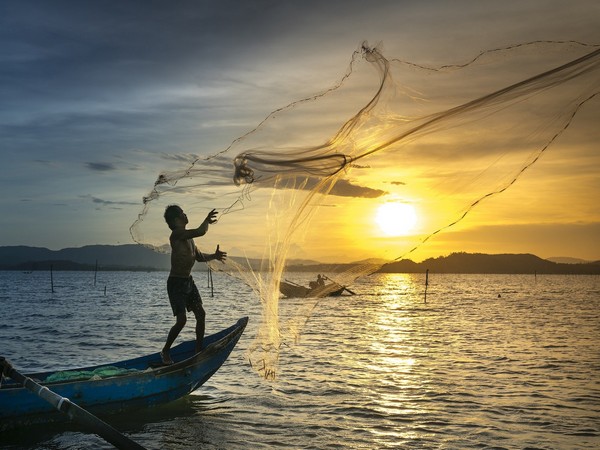Chile's artisanal fishermen fear die-out as trawling, climate bite
In small coves along Chile's Pacific coast, artisanal fishermen say life is becoming harder as industrial trawling depletes fish stocks even as they struggle to deal with climate impacts and economic headwinds like the high price of gasoline for boats. They hope a planned new law regulating the sector, currently making its way to Congress, will save small-scale operators who inherited their nets from their forefathers.

- Country:
- Chile
In small coves along Chile's Pacific coast, artisanal fishermen say life is becoming harder as industrial trawling depletes fish stocks even as they struggle to deal with climate impacts and economic headwinds like the high price of gasoline for boats.
They hope a planned new law regulating the sector, currently making its way to Congress, will save small-scale operators who inherited their nets from their forefathers. "Our culture at this moment is at risk of disappearing," said Eduardo Quiroz, a fisherman from Caleta Portales.
"We have a great hope that it is a law made for the recovery of resources," he said, adding the bill should put more emphasis on fishing methods, track more closely resources in different areas, and address issues like an overpopulation of sea lions. Chile, the world's top copper producer, is also one of the world's biggest exporters of fish and seafood: over $7 billion in 2021, according to the fisheries subsecretariat.
The current fishing law, enacted in 2013, has faced criticism from lawmakers and fishermen who say it only benefits large fisheries. The country's young leftist President Gabriel Boric has pledged to change the legislation and his government is meeting fishing communities and experts to hear their proposals.
"Having a new fisheries Law means regaining the confidence of the actors in the sector and the country in the regulation," said Julio Salas, undersecretary of fisheries and aquaculture. Chile has more than 99,557 artisanal fishermen registered in official records, government data show.
The new law could reach Congress in April-May, government officials have indicated. It could include elements to improve the sustainability of fishing stocks and give larger fishing quotas to small-scale businesses. Sonapesca, a chamber representing Chile’s industrial fisheries, said in a statement that it was open to dialogue, but called for a thorough technical analysis of any new law.
“It is an arduous and complex task, which requires the participation and support of all, with some vision from the state,” it said. Rodrigo Gallardo, an artisanal fisherman from the port of Valparaiso, said the practice of trawling needed to end in Chile.
"We have to fight against climate, against nature, against sea lions, against industry, it's an ordeal sometimes," says Gallardo, and he also warned about illegal fishing. He called for the creation of a more powerful Ministry of Fisheries and for the state to categorize fishermen as high-risk workers.
"Otherwise our livelihood risks collapsing," he said.
(This story has not been edited by Devdiscourse staff and is auto-generated from a syndicated feed.)










